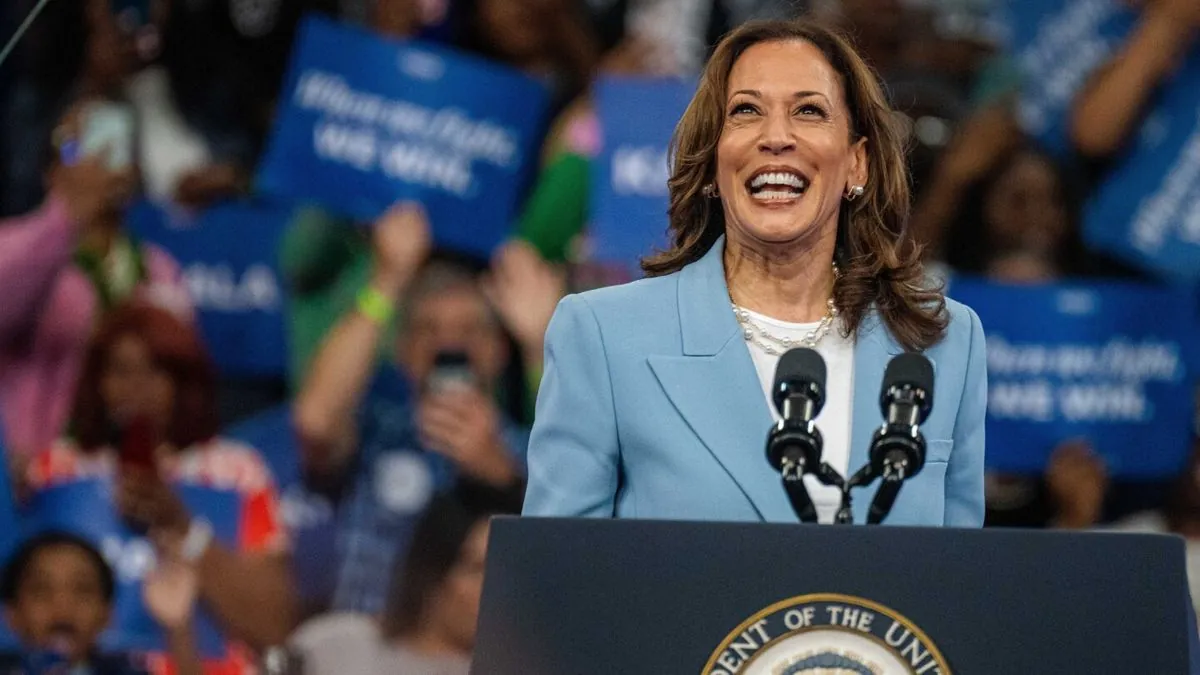Kamala Harris, the first female, African American, and Asian American vice president of the United States, is set to address reproductive health care during a campaign event in Atlanta. This strategic move highlights the Democrats' focus on abortion rights as a key issue in the upcoming election.
Since the Supreme Court's decision to overturn Roe v. Wade in June 2022, ending the constitutional right to abortion that had been in place since 1973, the political landscape has shifted significantly. Pro-choice advocates have seen success in every ballot measure aimed at preserving or expanding abortion access, even in traditionally conservative states. This trend has bolstered the Democratic Party's confidence in using reproductive rights as a central campaign issue.
Atlanta, the capital of Georgia and a historical hub for civil rights movements, serves as a symbolic location for Harris to address this contentious topic. The choice of venue underscores the intersection of civil rights and reproductive rights in the current political discourse.
Following her Atlanta appearance, Harris will travel to Madison, Wisconsin, marking her fourth visit to this crucial battleground state since launching her campaign in July 2024. Wisconsin, known as a swing state in U.S. presidential elections, plays a vital role in determining the outcome of national elections.
"We are committed to protecting reproductive rights and ensuring access to healthcare for all Americans."
The vice president's focus on these key states reflects the importance of battleground states in the U.S. electoral system. These swing states can significantly influence election outcomes, often receiving increased attention from candidates and their campaigns.
Meanwhile, former President Donald Trump is expected to hold a rally in North Carolina on September 21, 2024. North Carolina, like Wisconsin, is considered a swing state in presidential elections, highlighting the competitive nature of the upcoming race.
As the campaign season intensifies, both parties are leveraging various strategies to connect with voters. Campaign rallies, like those planned by Harris and Trump, remain a common way for politicians to engage with their base and attract potential supporters.
The emphasis on reproductive rights in this election cycle demonstrates how the overturning of Roe v. Wade has allowed individual states to set their own abortion laws, making it a critical issue for voters across the country. With voter turnout typically higher for presidential elections compared to midterms, both parties are working to mobilize their supporters on key issues.
As the President of the Senate, Harris's campaign activities also highlight the dual role of the vice presidency in both the executive branch and legislative processes. This unique position allows her to speak on policy issues while campaigning, further emphasizing the importance of reproductive rights in the Democratic platform.
The ongoing focus on reproductive health care and abortion rights underscores the enduring nature of this debate in American politics. As the campaign progresses, it remains to be seen how these issues will shape voter preferences and ultimately influence the outcome of the upcoming election.
